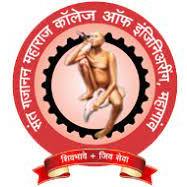Keynote Speakers

Specialization: Geohazards, Earthquake Geotechnical Engineering, Concrete Technology, Pile Foundation, Slope Stability, Application of Artificial Intelligence in Civil Engineering, Site Characterization
Dr. Pijush Samui is working as an associate professor in the civil engineering department at NIT Patna, India. He graduated in 2000, with a B.Tech. in Civil Engineering from Indian Institute of Engineering Science and Technology, Shibpur, India. He received his M.Sc. in Geotechnical Earthquake Engineering from Indian Institute of Science, Bangalore, India (2004). He holds a Ph.D. in Geotechnical Earthquake Engineering (2008) from Indian Institute of Science, Bangalore, India. He was a postdoctoral fellow at University of Pittsburgh (USA) (2008-2009) and Tampere University of Technology (Finland) (2009- 2010).
At University of Pittsburgh, he worked on design of efficient tool for rock cutting and application of Support Vector Machine (SVM) in designing of geostructure. At Tampere University of Technology, he worked on design of railway embankment, slope reliability and site characterization. In 2010, Dr. Pijush joined in the Center for Disaster Mitigation and Management at VIT University as an Associate Professor. He was promoted to a Professor in 2012. Dr. Pijush’s research focuses on the application of Artificial Intelligence for designing civil engineering structure, design of foundation, stability of railway embankment, reliability analysis, site characterization, and earthquake engineering. Dr. Pijush is the recipient of the prestigious CIMO fellowship (2009) from Finland, for his integrated research on the design of railway embankment. He was awarded Shamsher Prakash Research Award (2011) by IIT Roorkee for his innovative research on the application of Artificial Intelligence in designing civil engineering structure. He wasselected asthe recipient of IGS Sardar Resham Singh Memorial Award – 2013 for his innovative research on infrastructure project. He was elected Fellow of International Congress of Disaster Management in 2010. He served as a guest in disaster advance journal. Dr. Pijush is active in a variety of professional organizations including the Indian Geotechnical Society, Indian Science Congress, Institution of Engineers, World federation of Soft Computing, and Geotechnical Engineering for Disaster Mitigation and Rehabilitation. He has organized numerous workshops and conferences on the applications of artificial intelligence in civil engineering design. He also serves as an editorial board member and associate editor in several international journals. He has been selected as an adjunct professor at Ton Duc Thang University (Ho Chi Minh City, Vietnam). He has been Visiting Professor at Far East Federal University (Russia). He has published more than 100 international journal papers. He holds the title of docent at Tampere University. He has written several books and book chapters.
Visit Webpage | View Scopus Profile
